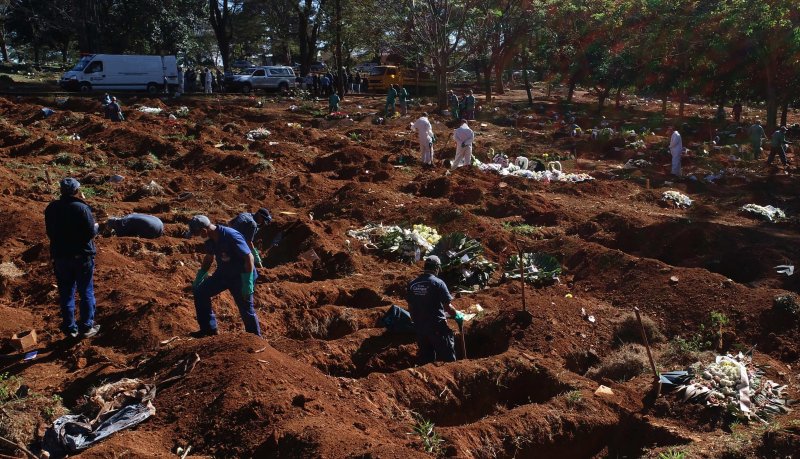
PAHO: Americas over take Europe as COVID-19 epicenter
by Darryl CooteMay 26 (UPI) -- The Americas have surpassed Europe to become the new epicenter of the coronavirus pandemic, the Pan American Health Organization said while calling on those countries to maintain movement restrictions to curb infections.
Carissa F. Etienne, PAHO director and World Health Organization head for the Americas, said during a media briefing Tuesday that some 2.4 million infections and more than 143,000 deaths have been reported in the Americas, making it the new epicenter of the COVID-19 outbreak.
She said in South America, Brazil was of particular concern as last week the number of new cases recorded was "the highest for a seven-day period since the outbreak began" in early December, though both Peru and Chile were also experiencing high infection rates.
Brazil leaped into second worldwide in coronavirus cases this week, tallying nearly 400,000 infections and more than 24,500 deaths to the virus as of early Wednesday, according to a live tracker of the virus by Johns Hopkins University, which has tallied the global outbreak at nearly 5.6 million cases.
Peru was in 12th place with nearly 130,000 infections and Chile was in 15th with more than 84,000 patients. However, Our World In Data, which is run out of Oxford University, calculated the three Latin countries as having the highest seven-day average in cases per capita.
"For most countries in the Americas, now is not the time to relax restrictions or scale back preventive strategies," she said. "Now is the time to stay strong, remain vigilant and aggressively implement proven public health measures."
Compounding the issue for the region of the Americans is that one in four is at risk of suffering severe effects of the virus due to underlying health conditions, such as diabetes, she said, also calling on those countries to intensify efforts to prevent them from getting sick.
"We have never seen such a deadly relationship between infectious disease and non-communicable diseases," she said. "Some of the data are truly alarming. Especially for our region, where NCDs are pervasive."
Countries should protect supply chains for essential medicines and ensure those medicines are effectively distributed to those who need them, she said.